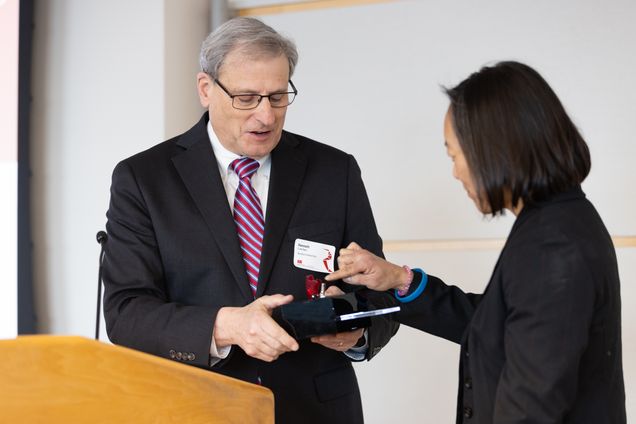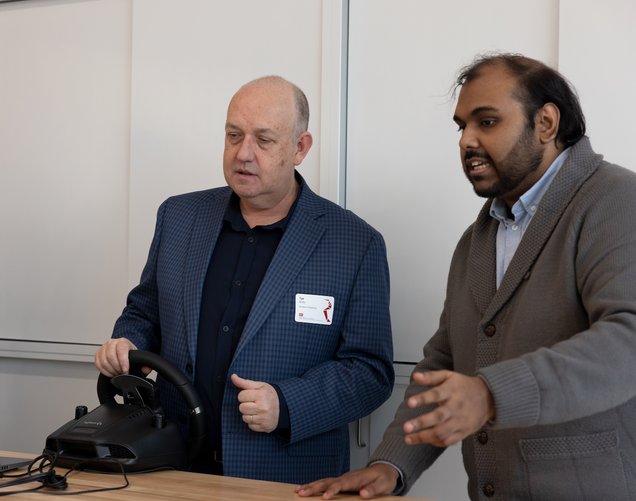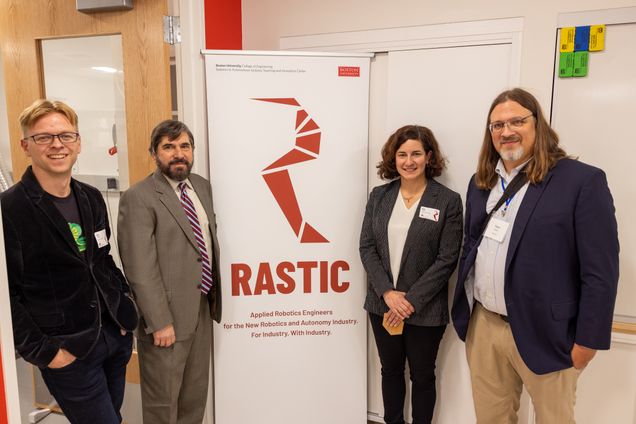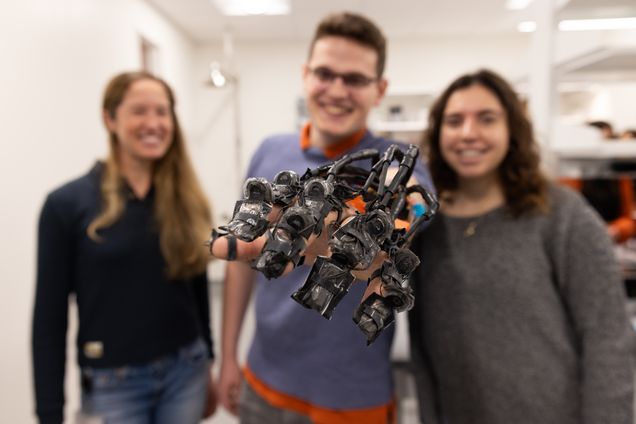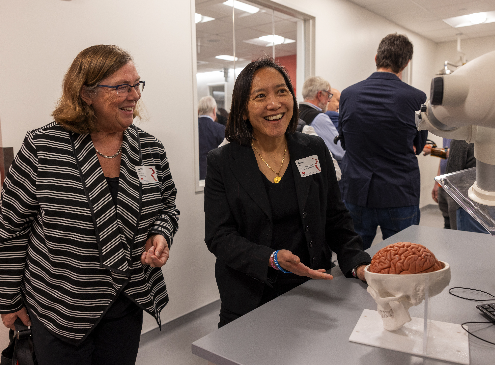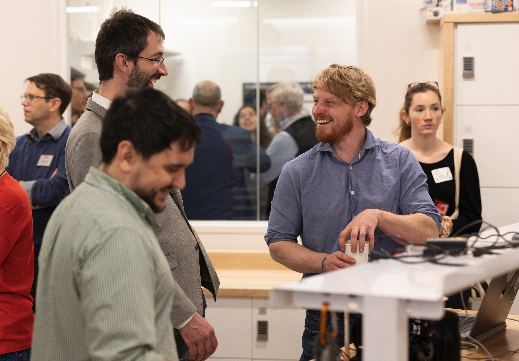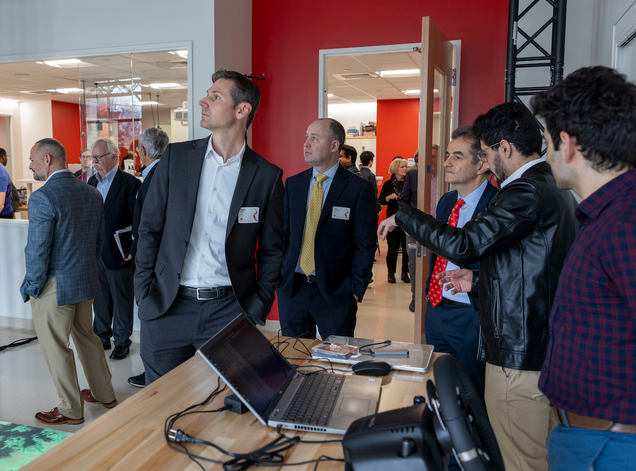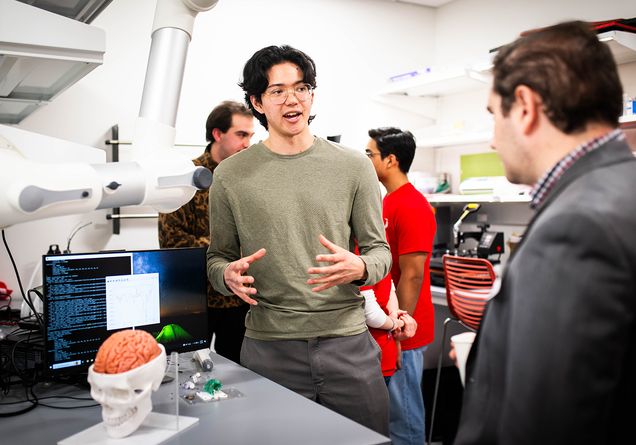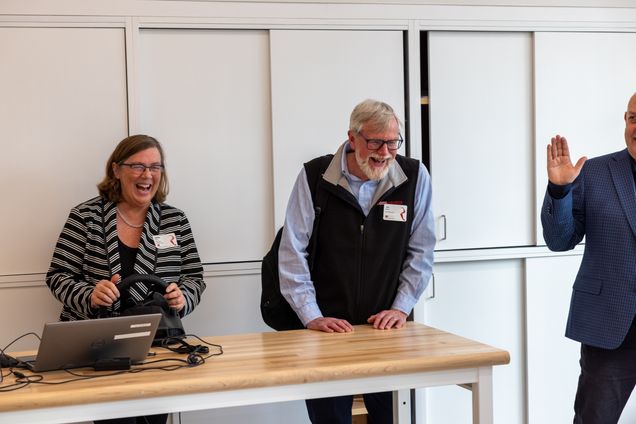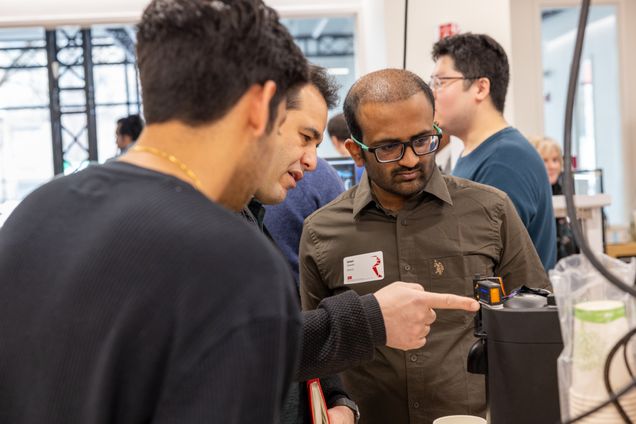Boston University celebrates the grand opening of the Robotics & Autonomous Systems Teaching and Innovation Center (RASTIC)
An autonomous robot cut the ceremonial ribbon at the March 4 grand opening of Boston University’s Robotics & Autonomous Systems Teaching and Innovation Center (RASTIC). / Video by Natalie Williams
By Maureen Stanton
An autonomous robot cut the ceremonial ribbon at the grand opening of Boston University’s $8.8 million Robotics & Autonomous Systems Teaching and Innovation Center (RASTIC). Held March 4th, the grand opening included talks from state, industry and university leadership; facility tours; and 16 student demonstrations of robotic projects, spanning smart cities, medical robotics, drones, autonomous driving, smart home applications, and more.
In development over the past year, RASTIC brings together academia and industry to develop the next-generation competitive robotics and autonomous systems workforce. The state-of-the-art laboratory and industry-aligned, hands-on interdisciplinary training and education allows students to design, build, and test all kinds of robots, from simple consumer ‘bots to GPU-fueled, AI-powered systems.
At Monday’s inaugural celebration, Commonwealth of Massachusetts Secretary of the Executive Office of Economic Development Yvonne Hao initiated the ribbon cutting and delivered remarks. Speakers also included MassTech Collaborative Executive Director Carolyn Kirk; Boston University Provost Ad Interim Kenneth Lutchen; Amazon Robotics Chief Technologist and Cofounder of Mass Robotics Tye Brady; ASML Senior Director of US Development & Engineering Spencer Farland; College of Engineering Dean Ad Interim Elise Morgan; and RASTIC Director Kenneth Sebesta. Hosting the event was Ioannis (Yannis) Paschalidis, RASTIC principal investigator, director of Hariri Institute for Computing, distinguished professor of engineering (ECE, SE, BME), and founding faculty of Boston University’s Faculty of Computing & Data Sciences.
In her remarks, Hao reflected on how RASTIC is a perfect example of the Commonwealth’s focus on investments in innovation to solve big problems, develop its workforce, and maintain its lead in robotics. “Looking at the data, Massachusetts is already one of the prominent leaders in robotics in the world with over 400 robotic companies,” said Economic Development Secretary Hao, “but the world is growing wildly competitive. This is a time to make sure we continue our leadership for future generations.”
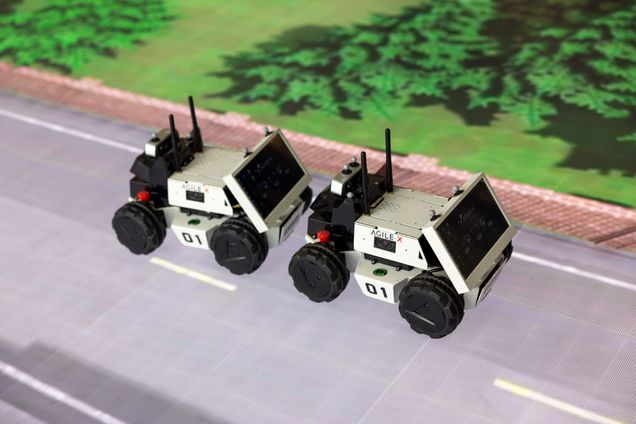
RASTIC was founded in 2022 with a $9 million capital investment from the Innovation Institute at the Massachusetts Technology Collaborative (MassTech) and Boston University. Housed in the BU College of Engineering and managed by the Center for Information & Systems Engineering, the 2,000 square foot RASTIC facility features areas dedicated to AI and soft robotics development, device construction, an arena for robot testing, and a miniature city to advance autonomous vehicle research.
“What was so exciting for us when we saw the opportunity to partner with Mass Tech Collaborative was that it was consistent with how we believe the future workforce for robotics and autonomous systems needs to be developed: not in the isolation of academia, not in isolation where companies have to train people with the skills they need, but in partnership, so the students coming up are ready to make an impact right away,” said Dr. Lutchen.
At RASTIC, students will learn by doing, partnering with companies to provide real world robotic solutions. RASTIC will also serve as a summit space for lectures on robotics by innovators and thought leaders.
“I’m really excited to see this facility come together and be filled wall to wall with passionate students showing their innovations,” said Brady. “Through RASTIC’s hands-on experiences, students will become builders, work ready, and more importantly, help change society for good where we use robots as a tool to extend human capability and make us do some really great things.”
“RASTIC will help give students a sense of what engineering teams deal with and do on a daily basis,” said Farland. “It’s truly the opportunity for students to develop a deeper understanding of robotics and integrated systems. By doing so, they can make a true impact on the world.”
While RASTIC only received its occupancy permit two weeks ago, the Center has been buzzing with action. In that short time, students created the RASTIC logo, set up diverse robotic demonstrations, and are gearing up to compete in a robotics competitions this spring.
“Robotics is so interdisciplinary,” said Dr. Sebesta. “No one can do it on their own, no one can have all the knowledge, but together, in partnership with industry, we can solve complex problems and ensure students have the skills industry want on day-one of joining a company.
”What students see in RASTIC is an opportunity to be the best versions of themselves and my job is to help them get there. These students are the next generation; they are going to revolutionize the world; and are going to change the world robotics.”
Companies interested in partnering with RASTIC, should contact RASTIC Director Kenn Sebesta, PhD, at (617) 353-2800 or kenn@bu.edu.
